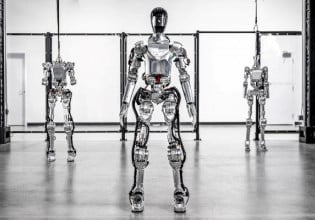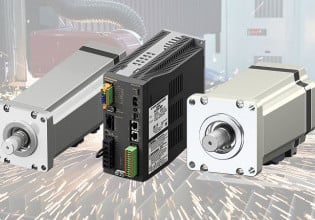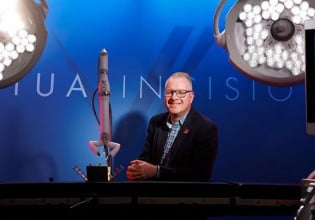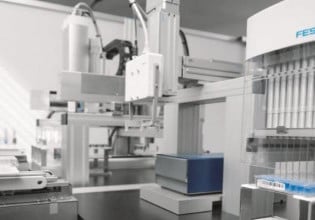R
The word automation has become a familiar phrase to the average Indian. In the process industries, the somewhat synonymous term instrumentation is no less familiar. It is ironic that in a day of automation (or Instrumentation) there still exists a partial void in efforts to train people engaged in a field that involves both art and science. Formal education in the field has been nil; practitioners have come from other disciplines, primarily electrical, mechanical, and chemical. The training offered to those entering the profession has come through formal and informal communication within the small but closely-knit group. Trainees are often bewildered by the slow rate at which they grasp the entire field and achieve the level of competence and confidence of a professional.
Necessity has dictated many of the advances of technology. In no other field is this more apparent than the discipline known as Instrumentation, a word unknown 50 years ago.
In this 50 year development period, instrumentation has evolved from a series of devices, developed to fill specific needs of measurement and control, to a science in itself, where the premises and economics of entire plants and processes are based on suitable control strategies and Instrumentation systems.
Instrumentation is now in a state of flux. There exist today plants with old but operable control systems, just as there exists processes, which are old but still profitable. If they were being built today, changes would be made, but a time for change has not been deemed appropriate in the plants. Today, plants are being built using the latest available electronic hardware, computer controls and advanced control concepts; others are built with appropriate hardware, future conversion to computer control; and still others built with conventional hardware (pneumatic or electronic) that would require major, expensive modifications to convert to computer control. In the last two decades, there has been much debate among those involved in instrumentation and control system technology, about the relative merits of local central control, pneumatic versus electronic instrumentation, computer versus conventional control systems and direct digital control versus supervisory control. A rational has emerged from these seemingly conflicting approaches, which dictates that the application engineer must judiciously select from among these alternatives system(s), which best fits the criteria under which he is working. Each system has its own merits. Yet none has been demonstrated universally superior in all applications.
A dominant factor in current instrumentation is the impact of computer applications. Computers are being used to control directly, to perform economic optimisation calculations, to make heat and material balance calculations or simply to perform the conventional monitoring, logging and alarm functions, so essential in today’s industrial processes. Computer application has penetrated all the major industries as well as specialised applications in many smaller industries.
Large computer systems are being designed and having fully redundant computers, with complete, full automatic transfer of data and controls in the event, of the on-line computer failing. These systems include sophisticated display features and require complex interface hardware and software techniques. Dedicated microprocessors have been immediately recognised for their ability to solve myriad of OEM control problems. They have caused a wave of industrial interest, ranging from children’s toys to washing machines, automatic machine tool programmers, automobile fuel optimisation, industrial lab equipment, process data scanners, local mass flow calculation hardware and basic control room instrumentation.
Programmable logic controllers now provide versatile alternatives to relay-type motor control systems. Allowing easy reprogramming in the field, entire control schemes can be recorded without costly rewiring. Bump-less transfer when switching from automatic to manual control and vice versa, anti-reset windup and plug-in capability for adding alarm functions, output limiters and feed forward units are features that are offered by various controller manufacturers.
Necessity has dictated many of the advances of technology. In no other field is this more apparent than the discipline known as Instrumentation, a word unknown 50 years ago.
In this 50 year development period, instrumentation has evolved from a series of devices, developed to fill specific needs of measurement and control, to a science in itself, where the premises and economics of entire plants and processes are based on suitable control strategies and Instrumentation systems.
Instrumentation is now in a state of flux. There exist today plants with old but operable control systems, just as there exists processes, which are old but still profitable. If they were being built today, changes would be made, but a time for change has not been deemed appropriate in the plants. Today, plants are being built using the latest available electronic hardware, computer controls and advanced control concepts; others are built with appropriate hardware, future conversion to computer control; and still others built with conventional hardware (pneumatic or electronic) that would require major, expensive modifications to convert to computer control. In the last two decades, there has been much debate among those involved in instrumentation and control system technology, about the relative merits of local central control, pneumatic versus electronic instrumentation, computer versus conventional control systems and direct digital control versus supervisory control. A rational has emerged from these seemingly conflicting approaches, which dictates that the application engineer must judiciously select from among these alternatives system(s), which best fits the criteria under which he is working. Each system has its own merits. Yet none has been demonstrated universally superior in all applications.
A dominant factor in current instrumentation is the impact of computer applications. Computers are being used to control directly, to perform economic optimisation calculations, to make heat and material balance calculations or simply to perform the conventional monitoring, logging and alarm functions, so essential in today’s industrial processes. Computer application has penetrated all the major industries as well as specialised applications in many smaller industries.
Large computer systems are being designed and having fully redundant computers, with complete, full automatic transfer of data and controls in the event, of the on-line computer failing. These systems include sophisticated display features and require complex interface hardware and software techniques. Dedicated microprocessors have been immediately recognised for their ability to solve myriad of OEM control problems. They have caused a wave of industrial interest, ranging from children’s toys to washing machines, automatic machine tool programmers, automobile fuel optimisation, industrial lab equipment, process data scanners, local mass flow calculation hardware and basic control room instrumentation.
Programmable logic controllers now provide versatile alternatives to relay-type motor control systems. Allowing easy reprogramming in the field, entire control schemes can be recorded without costly rewiring. Bump-less transfer when switching from automatic to manual control and vice versa, anti-reset windup and plug-in capability for adding alarm functions, output limiters and feed forward units are features that are offered by various controller manufacturers.






